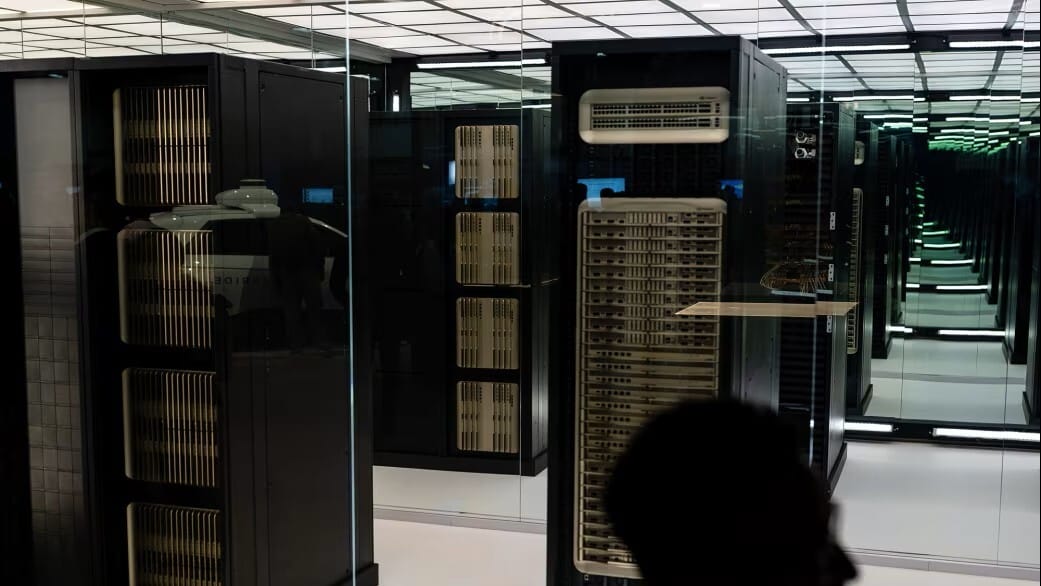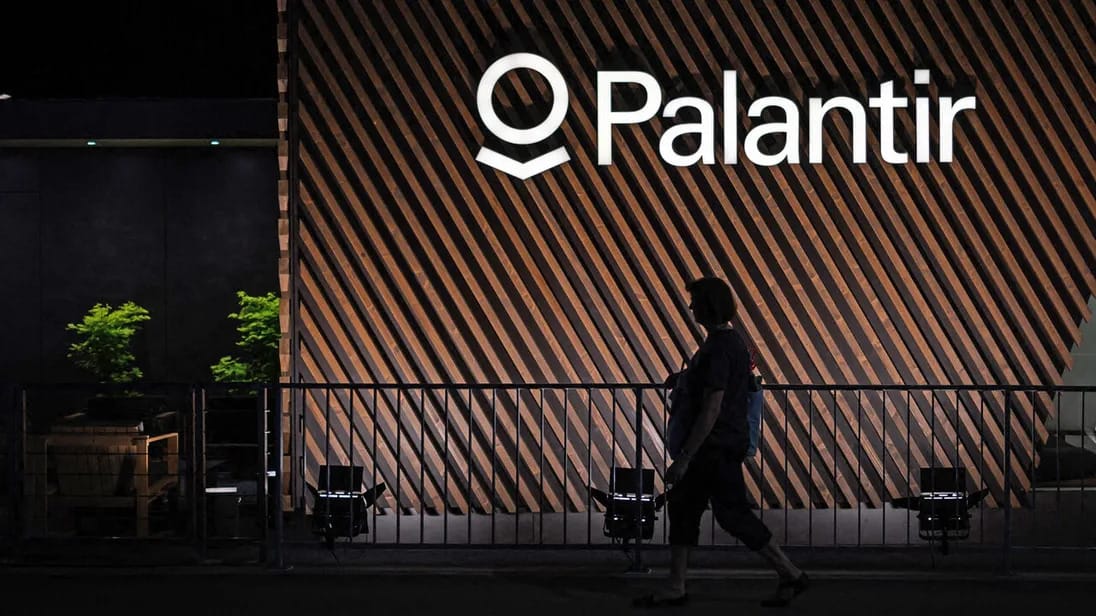🗞 YOUR DAILY ROLLUP
Top Stories of the Day

🫧 Analysts Downplay Fears of AI Bubble
Some analysts argue 2025’s AI bubble worries are overstated despite market volatility. NVIDIA’s strong earnings and rising cloud demand fuel claims that AI firms have real business models unlike many dot-com era startups. Supporters say rapid model improvements and new use cases are driving major revenue growth. Still, some investors warn momentum chasing resembles a hype cycle.
🕵️ OpenAI Confirms API User Data Exposure
OpenAI says a Mixpanel breach exposed some API users’ names, emails, locations, and device details. No chat data, passwords, payment info, or API keys were affected. Mixpanel detected the intrusion on November 9, 2025, and shared details with OpenAI two weeks later. OpenAI has suspended Mixpanel tracking and warned users about phishing risks.
🤖 Chinese Tech Firms Train AI Models Overseas
Chinese giants are reportedly training new AI models abroad to access NVIDIA chips restricted by U.S. export rules. Alibaba and ByteDance are said to be using Southeast Asian data centers run by non-Chinese operators. Offshore training has grown since U.S. limits on NVIDIA’s H20 chip in April. DeepSeek remains a domestic outlier, aided by a large chip stockpile and work with Huawei.
🛒 Bezos’ Project Prometheus Buys General Agents
Jeff Bezos’ secretive AI venture, Project Prometheus, has reportedly acquired agentic computing startup General Agents. The effort has raised over $6 billion and hired more than 100 employees, including veterans from DeepMind and Tesla. The deal followed an off-record AI dinner in San Francisco hosted by Vik Bajaj, where founder Sherjil Ozair was a last-minute attendee.
🤔 FRIDAY FACTS
The 260-Ton Thanksgiving Mistake
In 1953, Swanson & Sons made a massive calculation error: they ordered too many turkeys. The day after Thanksgiving, they were left with 260 tons of frozen birds.
Desperate to keep the meat from spoiling, they stored the surplus in ten refrigerated train cars that traveled back and forth across the country just to keep the freezers running. Bleeding money, they needed a miracle way to sell 520,000 pounds of turkey fast—and found the answer in a new piece of living room technology.
Stick around to find out! 👇
🪧 POWERED BY ROCKET.NEW
AI Building Without the Guessing Game


Every AI builder forces you to learn prompt engineering. Write carefully. Hope it understands. Retry when it doesn't. Rocket's Precision Mode eliminates this friction. Over 100 structured commands that execute exactly what you specify.
"Fix mobile layout" repairs responsive issues. "Add Stripe checkout" builds payments. "Connect Supabase database" sets up backend. "Optimize images" compresses assets. No interpretation layer. No retries. Just execution. First-try accuracy: 95%. Build time: 10x faster. Zero prompt engineering required.
📽 VIDEO
Figure Robotics FIRED Their Head of Safety
Whistleblower lawsuit claims Figure Robotics rushed unsafe robots to market after a near-miss injury, ignoring warnings and firing its head of safety.
📺 FROM THE LIVE SHOW
📈 MARKETS
Palantir’s Soaring Valuation Masks a Surprisingly Durable & Profitable Business

The Economist reports that Palantir, valued at nearly $450 billion, trades at eye-watering multiples—137× sales and 624× net profit—despite growing skepticism from investors including Michael Burry, who recently took a large short position. The piece argues that while Palantir’s stock may be inflated by AI hype, its underlying business is strengthening, with 63% year-on-year revenue growth and 248% operating-profit growth in the July–September quarter. Even if AI enthusiasm cools, the article contends that Palantir’s deep integration within client operations and its now-profitable “forward-deployed engineer” model position the company for long-term resilience.
Palantir’s story illustrates how AI-era valuations can distort investor expectations even as the underlying software economics solidify: deep operational integration, high switching costs, and profitable services-plus-software models create real durability. For enterprises and governments increasingly adopting AI systems, Palantir shows that bespoke, high-touch deployment models, once seen as inefficient, can become strategic advantages at scale. → Read the full article here. (Paywall)
⚖️ REGULATION
FDA Weighs Regulating A.I. Therapy Chatbots as Safety Concerns Grow

The New York Times examines whether A.I. therapy chatbots should be regulated as medical devices, as the FDA held its first public hearing on the issue. The article details the rapid rise of chatbots like Ash, built by Slingshot AI, and the mounting concerns following state bans, regulatory uncertainty, and several high-profile safety incidents involving general-purpose A.I. systems. Reporter Cade Metz outlines how companies, clinicians, and regulators are navigating early evidence of benefit alongside unresolved questions about safety, oversight, and the limits of automated mental-health support.
A.I. therapy tools are advancing faster than the regulatory frameworks meant to govern them, creating a gap between accessibility and validated safety. As the FDA explores oversight, the central challenge is balancing potential public-health benefits, especially in underserved areas, with safeguards that recognize the unique risks of automated mental-health support. → Read the full article here. (Paywall)
🛰 NEWS
What Else is Happening

💸 U.S. AI Mega-Rounds Surge: Forty-nine U.S. AI startups have already raised $100M+ in 2025, matching 2024 and showing more repeat mega-rounds as investor appetite holds strong.
🕰️ Why ChatGPT Fumbles Time: ChatGPT lacks built-in access to real clocks, so without search tools it guesses from context—causing the chatbot’s famously inconsistent timestamps.
🚩 China Flags Robot Investment Bubble: Beijing’s planners warn that funding is flooding into humanoid robotics despite few proven uses, risking copycat designs as 150+ firms crowd the sector.
👴 Helping Seniors Spot AI Scams: Axios urges families to discuss AI with older relatives as seniors misidentify online content a third of the time, making them prime targets for convincing AI-driven fraud.
🎓 Utah Deploys ChatGPT Edu Campuswide: The University of Utah rolled out OpenAI’s secure, education-focused ChatGPT Edu, offering advanced AI tools while emphasizing responsible use.
🧰 TOOLBOX
Trending AI Tools
📊 Tome: AI sales assistant mapping key accounts, surfacing insights, and crafting outreach
📚 Title3Vec: ML model ranking arXiv papers via title embeddings to improve search.
🧊 Render Lion: Photoreal 3D renders and animations for architecture, products, and ads.
🏆 REFERRALS
Share and Get 🔥 Prizes
🤔 FRIDAY FACTS
The TV Dinner
A salesman named Gerry Thomas realized he could package the leftover turkey into aluminum airline trays and market them specifically to be eaten in front of the booming new gadget: the television.
They named it the "TV Dinner" and even designed the box to look like a TV set with knobs. Swanson hoped to move 5,000 units to clear the inventory; instead, the concept exploded, and they sold 10 million in the first year.
🗒 FEEDBACK
Help Us Get Better
What did you think of today's newsletter?
That’s a Wrap!
📢 Want to advertise with Forward Future? Reach 600K+ AI enthusiasts, tech leaders, and decision-makers. Let’s talk—just reply to this email.
🛰️ Want more Forward Future? Follow us on X for quick updates, subscribe to our YouTube for deep dives, or add us to your RSS Feed for seamless reading.
Thanks for reading today’s newsletter—see you next time!
Matthew Berman & The Forward Future Team
🧑🚀 🧑🚀 🧑🚀 🧑🚀

